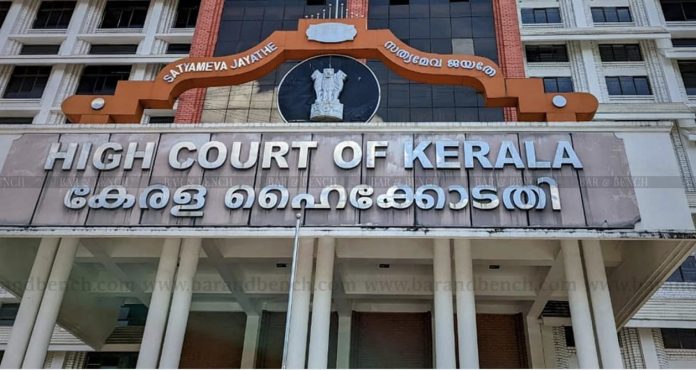Kochi: The Kerala High Court, addressing the ongoing Munambam Waqf land dispute, remarked on Tuesday that it would pass an interim order temporarily staying dispossession notices issued by the Waqf Board to landowners. The dispute involves around 600 parties who claim to have purchased land from the Farook College Committee in Kozhikode before the enactment of the Waqf Act, 1995, reports the Bar and Bench.
A division bench comprising Justices Amit Rawal and KV Jayakumar observed that the issue was fundamentally a land dispute and directed the petitioners to pursue their claims through civil suits. “You have to get a declaration that you are the owners. High Court cannot decide a disputed question of fact,” Justice Rawal stated. The court indicated it would grant a temporary stay on dispossession until the petitioners obtain further relief from a civil court.
The remarks were made while hearing a petition filed by eight parties challenging various provisions of the Waqf Act. The petitioners contended that the Act grants special privileges to Waqf properties, thereby discriminating against other religious and private properties, violating constitutional provisions such as Articles 14, 15, 25, 27, and 300-A.
The petitioners allege that the Waqf Board issued notices claiming ownership of land previously sold by the Farook College committee, prompting steps to evict the current occupants. Additionally, the Board reportedly requested the Revenue Department to deny Record of Rights (RoR) and block the mutation of ownership documents, intensifying tensions in Munambam.
Protests have erupted in the area, with political parties expressing divided opinions on the matter. The petitioners argue that the Act lacks provisions to safeguard the rights of non-Islamic communities and fails to provide affected parties with an opportunity for a fair hearing.
The petitioners have raised objections to several provisions of the Waqf Act, including those concerning the establishment of Waqf Tribunals under Section 83, which they claim are discriminatory and beyond the constitutional framework of Article 323-A(1). They also question the exemption of Waqf properties from the Limitation Act, arguing that all religious properties should be treated equally under the law.
The plea calls for the striking down of numerous sections of the Waqf Act, including Sections 4, 5, 6, 7, 28, 29, 40, 52, and 83, among others.
Advocates KS Bharathan, Aadithyan S Mannali, and Aleena Sony represented the petitioners in the case.
While the court refrained from issuing a final order during Tuesday’s proceedings, it assured interim protection to the petitioners against dispossession. The High Court emphasized the importance of resolving the matter through civil litigation, where ownership can be determined with greater clarity.
The case highlights the ongoing debate over the perceived inequities in the Waqf Act and its impact on land ownership disputes across the country.




